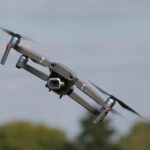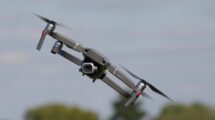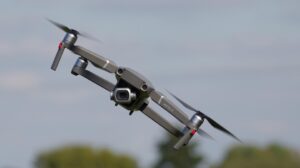Transforming Warfare: The Rise of Autonomous Drones on the Battlefield
Introduction
In the rapidly evolving landscape of modern warfare, the advent of autonomous drones represents a paradigm shift that not only enhances the capabilities of military operations but also raises pressing ethical and strategic questions. As nations invest heavily in aerial unmanned systems, the battlefield is witnessing a transformation that is redefining tactics, strategies, and the very nature of conflict itself.
The Evolution of Drones
Initially developed for surveillance and reconnaissance, drones have rapidly evolved into sophisticated autonomous platforms equipped with advanced artificial intelligence (AI) capabilities. Today’s combat drones can make real-time decisions regarding targeting and engagement without direct human intervention. This evolution, spearheaded by technological advancements in AI, machine learning, and sensor integration, has catapulted drones into frontline roles traditionally occupied by human pilots.
The Mechanics of Autonomy
Autonomous drones utilize a combination of onboard sensors, data fusion technologies, and advanced algorithms to interpret their environment, identify threats, and execute missions. These drones can operate independently, relying on pre-programmed operational parameters, or they can be remotely directed by human operators from great distances. The integration of machine learning allows these systems to adapt to changing battlefield conditions, making split-second decisions that can mean the difference between mission success and failure.
The Strategic Advantages
-
Increased Efficiency and Reach: Autonomous drones can carry out missions over vast areas with minimal need for fuel stops, allowing military forces to project power farther than ever before. Their capability to operate in hostile environments reduces risk to human pilots while maintaining operational effectiveness.
-
Precision Targeting: The ability to process vast amounts of data rapidly means autonomous drones can differentiate between hostile and non-hostile targets with increasing accuracy. This accuracy is paramount in urban warfare scenarios, where the risk of collateral damage is high.
-
Cost-Effectiveness: Compared to manned aircraft, drones are significantly less expensive to operate and maintain. This cost-efficiency allows militaries to deploy larger fleets, enhancing surveillance and combat capabilities without proportionate increases in budget allocations.
- Persistent Surveillance: Autonomous drones can provide continuous monitoring over specific areas, gathering intelligence without the need for downtime associated with human operations. This capability is crucial for counterterrorism operations and border security.
Ethical and Strategic Concerns
While the rise of autonomous drones offers various advantages, it also generates ethical concerns and strategic dilemmas that cannot be overlooked:
-
Reduction of Human Oversight: The delegation of lethal decision-making to machines raises questions about accountability in warfare. The potential for errors—whether through malfunction or misinterpretation of data—could lead to unintended casualties and geopolitical repercussions.
-
Escalation of Conflicts: With the ability to engage targets autonomously, there is a risk that military conflicts could escalate more quickly, as states may feel more inclined to use these systems with less concern for human life than traditional strikes.
-
Proliferation of Technology: The accessibility of drone technology increases the risk of it being adopted by non-state actors and hostile nations, potentially leading to a new arms race and increased global instability.
- Legal Challenges: The use of autonomous drones raises significant legal questions under international law and humanitarian principles regarding the conduct of warfare, particularly concerning the principles of distinction and proportionality.
Conclusion
As nations continue to invest in and develop autonomous drone technology, the face of modern warfare is undoubtedly changing. The strategic advantages these drones provide could revolutionize military operations; however, the ethical and legal implications of their use must be addressed comprehensively. The duality of drone warfare—from enhanced capabilities to complex moral dilemmas—presents a challenge that the global community cannot afford to overlook in its quest for a secure future. How societies choose to navigate this new landscape will shape the principles of warfare for generations to come.
Transforming Warfare: The Rise of Autonomous Drones on the Battlefield






























Add Comment